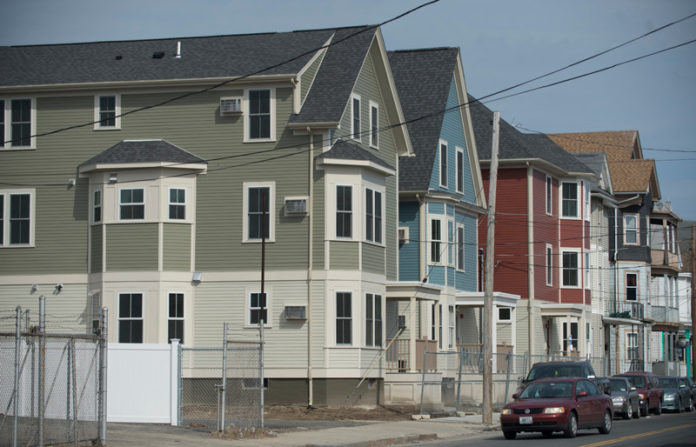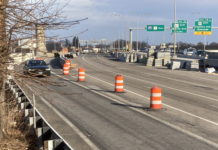
When the federal government repossessed the Medina Village apartments off Cranston Street in Providence’s West End in 2010, there was a real possibility the 22 vacant and decaying buildings in the complex would be abandoned.
Located in one of the hardest hit, foreclosure-ridden neighborhoods in the city, the complex relied on Section 8 federal rental supports, which the government has been scaling back since the 1980s.
“If there was no Section 8, most likely the properties would have been abandoned,” said Richard Godfrey, executive director of Rhode Island Housing, the nonprofit lender that stepped in and bought the properties from the federal government for $1.
“When the [U. S. Department of Housing and Urban Development] foreclosed, the properties had deteriorated to the point of being unsound,” he added. “The cost to rehab those properties in that neighborhood would not be supported by the rents you could get without Section 8. They would not be viable.”
So Rhode Island Housing, the state and its congressional delegation began working on a way to redevelop the 83-unit, scattered-site complex in a way that would retain the low-income rental supports.
They lobbied HUD to keep the rental supports in place and assembled a financing package using a mix of state and federal grants, loans and tax credits to entice a developer to come in and revitalize the properties.
This past winter, the results of that effort were realized as residents began moving into the renovated and expanded development, now called the Phoenix Apartments. “I think 83 units is a significant amount scattered through the West End and having families and individuals in these buildings and active and outside in the neighborhood is very important to the community,” said Jeanne Cola, executive director of the Rhode Island office of the Local Initiatives Support Corp., which led neighborhood outreach efforts on the redevelopment project. “People are proud to live in these new units. What was there before was not very nice. It is a symbol of optimism that there is investment in this community.”
The lender ultimately chose South Providence-based Omni Development Corp., a nonprofit familiar with low-income rental projects in the city’s distressed neighborhoods.
Omni, which has rehabilitated several Providence properties, including the Whitmarsh and Lockwood Plaza, then partnered with for-profit WinnDevelopment of Boston, which has developed $1.5 billion in assets, including six properties in Providence.
In the later stages of Medina’s collapse, vacancies put financial pressure on the owners, who neglected maintenance, which led to more vacancies and additional loss of rental income.
The proposal developed by Omni and Winn aimed not only to renovate the existing multifamily houses, but add three new apartment buildings, allowing the same 83 units to be made larger and spread over more area. It also included building a community center and buying land to create three new surface parking lots.
“We decided the buildings were not big enough – they were overcrowded,” said Adam Stein, vice president of development at WinnDevelopment. “We picked up four more buildings to ‘de-densify’ the units. We weren’t happy with the layout. In some cases there were units less than 10 feet by 10 feet.”
In addition to expanding the apartments, reorganizing and refinishing them, the development team put in all new mechanicals with an eye toward significantly boosting energy efficiency.
Caffey said demand for the new units is strong and 700 people expressed interest in them after the first open house.
The entire redevelopment project is estimated to cost $21 million.
The project has secured two loans from Rhode Island Housing totaling approximately $2.7 million, plus a $755,000 grant from the Building Homes Rhode Island program funded by state voter-approved housing bonds.
The project also secured a $1.6 million federal Neighborhood Stabilization grant from Housing and Urban Development and a $50,000 lead-abatement grant.
Federal low-income tax credits are expected to provide about $1.7 million annually.
To fill out the remainder of the project, Bank of America is lending Omni and Winn $13.5 million in a conventional construction loan.
When Medina went under, about 30 families living in the apartments were moved to temporary homes while the renovations took place.
The first 12 rehabbed units opened late last year, followed by 28 units so far this year. Fourteen more are scheduled to open this month, 17 in May and the final 12 by the end of June.
Under the Section 8 program, Housing and Urban Development sets a market rate for authorized properties and then pays the owner the difference between that rent and what the tenants can afford (tenants pay 30 percent of their income).
“We have put a lot of investment into the West End, but the scale of this development was much larger than the others and Section 8 serves a different population,” Godfrey said. •












